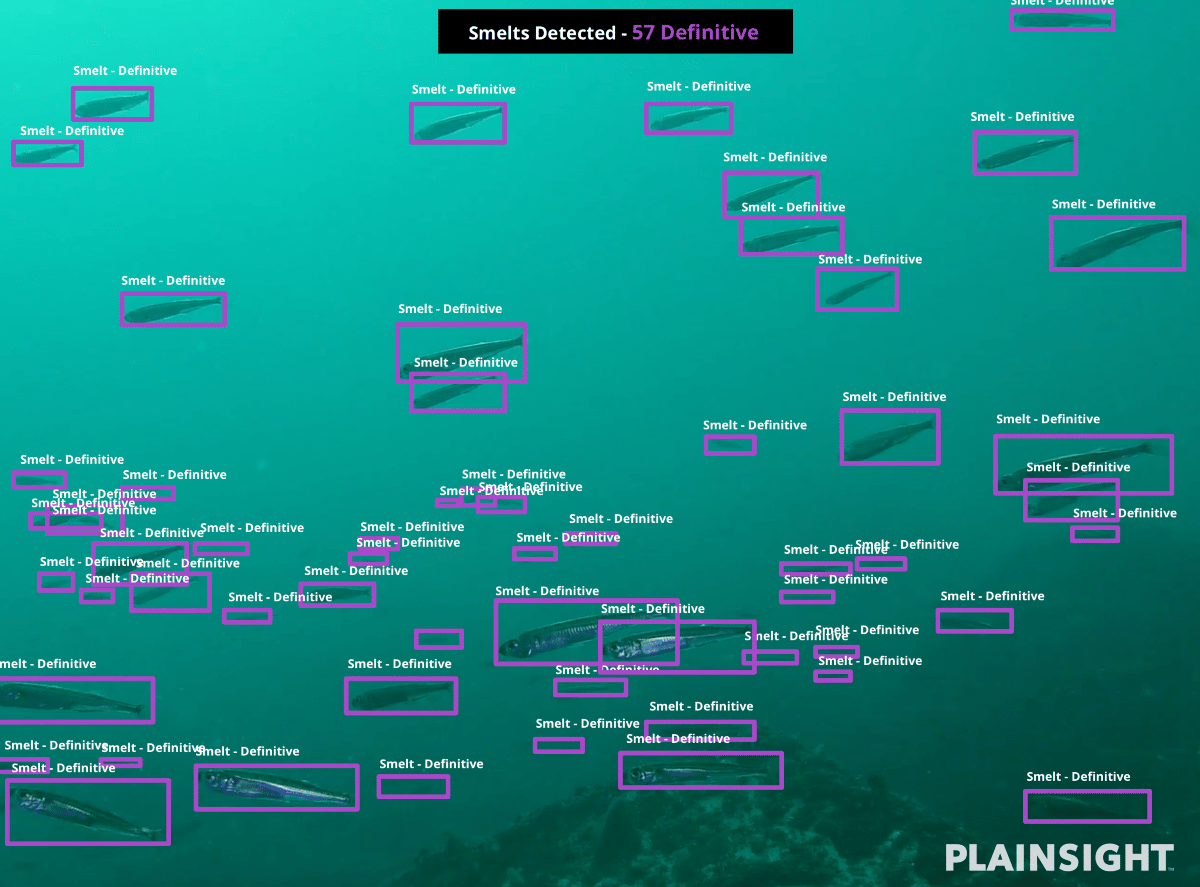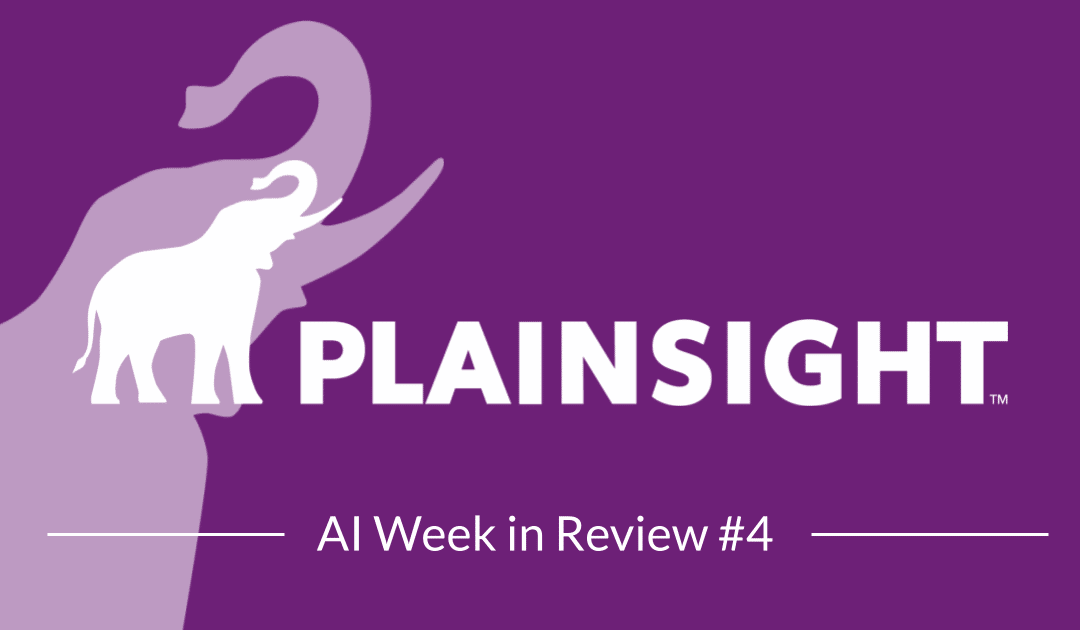This week in AI and ML news: The robot lawyer runs into legal trouble, Shutterstock enters the generative AI game, and more.
Plainsight in the News

Plainsight’s partnership with MarineSitu is already making waves. This week, our Co-Founder and CTO, Logan Spears, sat down with Maritime Executive for a conversation alongside MarineSitu Co-Founder, James Joslin. In addition to covering MarineSitu’s history and the origins of this exciting partnership, the two experts discuss some of the promising future use cases for AI-equipped, submersible monitoring solutions. Enterprises in emerging fields including marine energy and aquaculture are already leveraging this technology to innovate while delivering on sustainability goals and promoting responsible stewardship over the Earth’s waterways. With Blue Economy industries expected to reach $3 trillion in total value by 2030, Plainsight and MarineSitu are just getting started.

In the first installment of Environment and Energy Leader’s C-Suite Series, our Co-Founder and CPO, Elizabeth Spears discussed taking a human-centric approach to AI. Such an approach sees enterprises emphasize transparency and take pains never to lose sight of everything their human workforce brings to the table. The conversation ends on a cliffhanger, so be sure to check back in for Part 2.
AI News
Legal Threats Put a Stop to AI Lawyer’s Debut
AI-powered solutions showcased a range of impressive and controversial capabilities throughout 2022. 2023 is off to an auspicious start with ChatGPT passing college exams, artists and creators decrying ML-driven plagiarism, and an AI lawyer scheduling and then abruptly canceling its debut appearance in court.
Joshua Browder, the founder and CEO of DoNotPay, announced on Wednesday that he had received legal threats from various state bar associations and would be canceling his solution’s February 22nd court date. Though Browder did not name the associations to threaten legal action, he has reported that California is one of the states investigating DoNotPay. The “robot lawyer” was intended to help defendants fight traffic tickets. Smart glasses would record live audio and generate responses supported by text generators including ChatGPT.
NPR notes courtroom rules present inherent roadblocks for any solution relying on audio. It is illegal to record live audio during trials in federal courts and state-level courts often ban recording as well. Learn more about DoNotPay’s initial plans and recent troubles.
NYC Continues Efforts to Eliminate Bias in AI-Supported Hiring
New York City’s Department of Worker Protection recently delayed the introduction of new rules governing how employers leverage AI in hiring and mandating audits for instances of bias. Regulations were meant to take effect on January 1st, but a range of questions and brewing controversy encouraged the city to delay the nation’s first law of its kind until April 15th. On Monday, January 23rd, the city held a public hearing for employers and solution providers to raise their concerns.
Potential penalties range from $500 to $1,500 and employers are ultimately the ones responsible for ensuring compliance. To some, however, the proposed legislation is far too broad, potentially affecting businesses that don’t even use AI. TechTarget quotes a number of executives and summarizes the ongoing conversation around NYC’s proposed laws. Check it out.
Shutterstock Introduces its Own Generative AI Solution
Shutterstock has partnered with OpenAI, the team behind popular generative solutions like DALL-E 2 and ChatGPT, to introduce a new solution for its paying customers. The largest online repository of stock imagery now allows users to create images from text prompts in any of the languages it supports. These new features are currently in beta testing.
Generative solutions are increasingly controversial. Everyone from artists to academic institutions have raised concerns about the potential for unchecked plagiarism and fundamental changes to creative professions. In anticipation of legal and ethical questions, Shutterstock has announced that its AI was trained on licensed datasets and revealed plans to pay artists whose work it uses through a Contributor Fund. Gizmodo discusses the news and offers the somewhat disappointing results of their tests.
About Plainsight Technologies
Plainsight dramatically reduces the cost and complexity of AI-powered computer vision across many verticals and enterprise use cases, including manufacturing, retail, food service, theft, and more. As companies automate their operations with AI and Agents, Plainsight brings vision capabilities to watch and analyze events in the real world and generate structured data for analytics and reporting. Headquartered in Kirkland, Washington, Plainsight Technologies operates as a distributed team, delivering cutting-edge solutions worldwide. To learn more, visit plainsight.ai.




